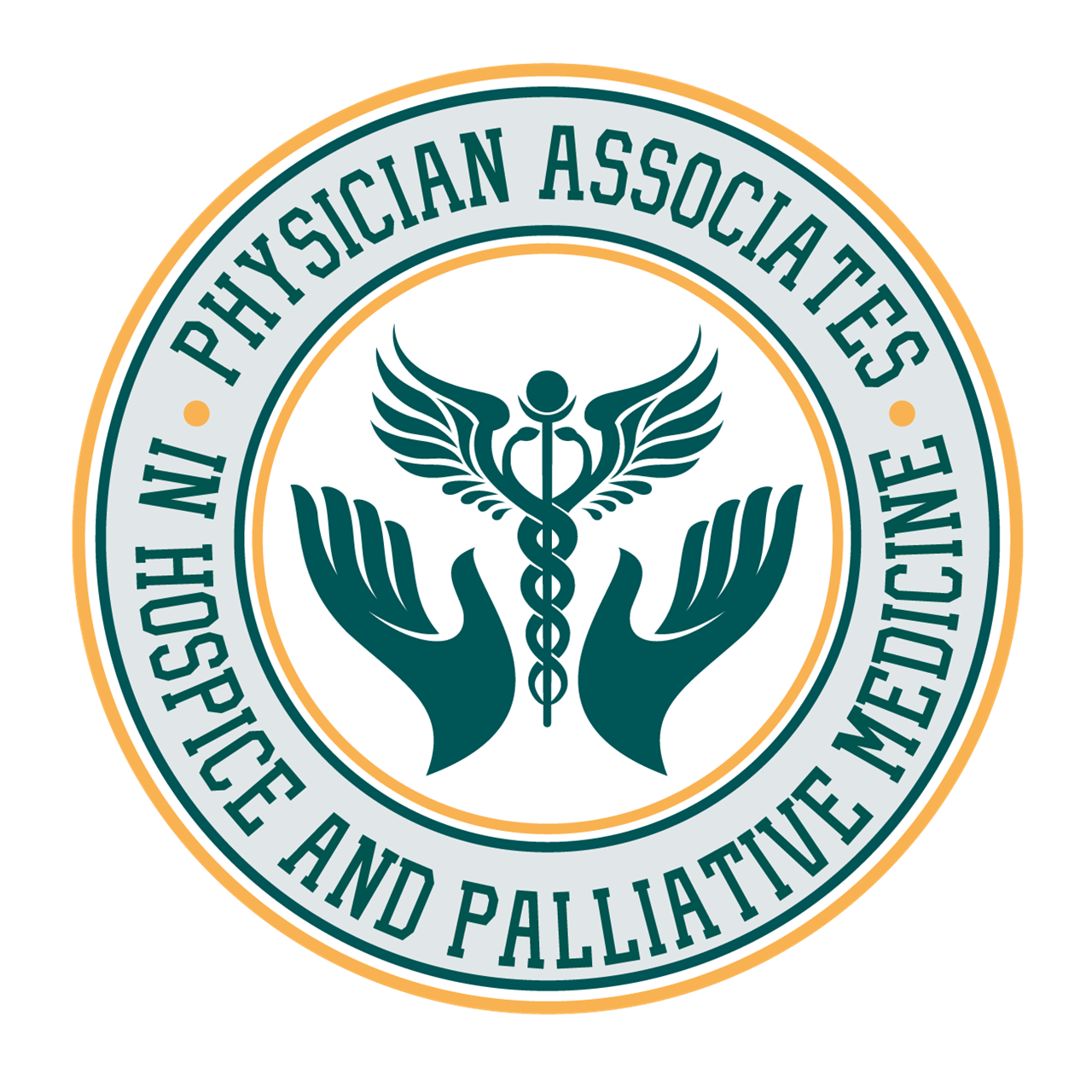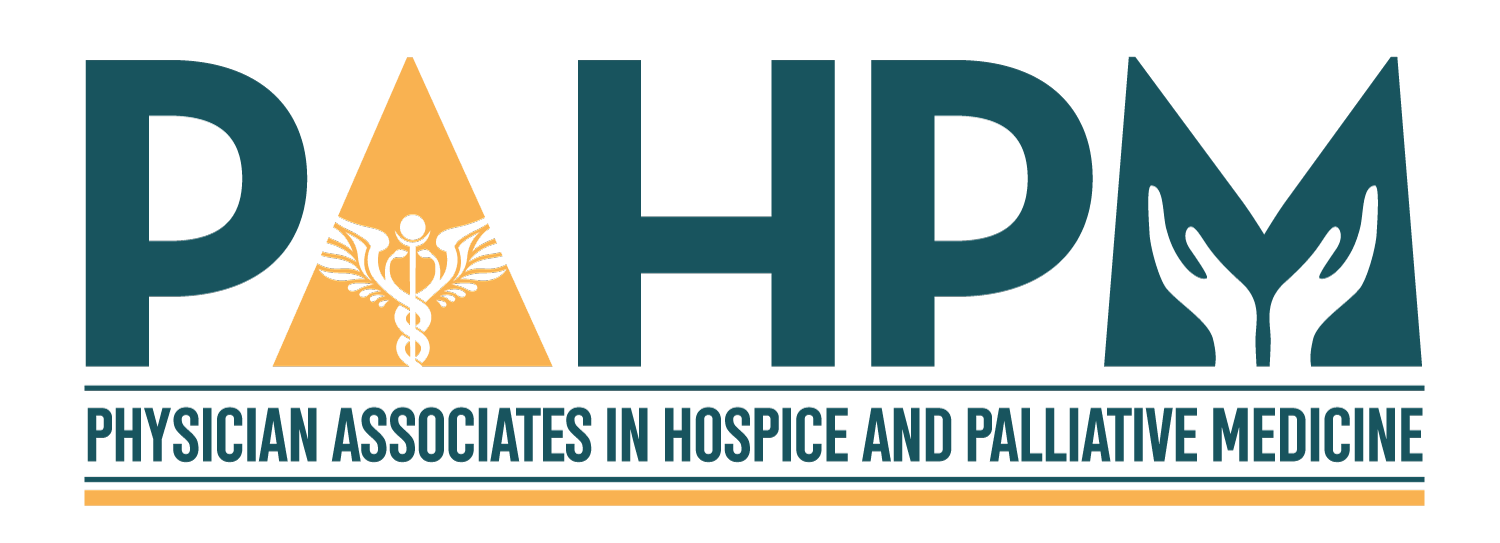Menu
Log in
History of Physician Associates in Hospice & Palliative Medicine (PAHPM) |
1990s
- Physician Assistants/Associates (PAs) became recognized to work in all care settings in the United States (US), and healthcare teams expanded to begin including PAs.
- First reports of PAs working in Hospice and/or End of Life (EOL) care, notably in rural settings.
- 1996 - American Academy of Physician Assistants (AAPA)’s House of Delegates (HOD) Libby Coit and Ed Freedman spoke at the HOD meeting about their rural practice being impacted by new hospice legislation excluding PA involvement.
- PA leaders in hospice and palliative care (HPC) advocated for legislative change to include PAs in Washington D.C.
- Added from the PA History Society website: “Elizabeth “Libby” Coyte, PA-C - She worked with Senator Grassley to include PAs in Medicare (1997) and more recently to include PAs in Hospice, Home Health and Skilled Nursing Facilities regulation. She worked with Senator Harkin on rural health issues, PA education funding and health care reform.”
2000s
- 2006 - first PA accepted into the Harvard Palliative Care Education and Practice (PCEP) program.
- 2008 - PA developed and led Veterans Affairs (VA) hospital program in North Dakota and gained $5.8 million to replicate Palliative Care programs in 8 other Midwest VAs.
- 2009 – Accreditation Review Commission on Education of Physician Assistants (ARC-PA) mandates hospice and palliative care education to be a part of in PA Student Curriculum.
- 2009 – Judy Knudson, Donna Seton, and Rebekah Halpern began to gain signatures in support of developing a Special Interest Group for Physician Assistants at the American Academy of Hospice and Palliative Medicine (AAHPM).
2010s
- 2011 – Development of the Specialty Organization (SO), Physician Assistants in Hospice and Palliative Medicine (PAHPM) affiliated with AAPA was created.
- 2011 - Birth of the Physician Assistant Special Interest Group (SIG) at the American Academy of Hospice and Palliative Medicine (AAHPM).
- 2012 - PAHPM wins the Constituent Organization Award of Achievement from AAPA.
- 2012 - AAPA creates an “Specialty Practice Issue Brief” about PAs working in Hospice and Palliative Medicine to improve awareness of the field in the profession.
- 2012 - PAHPM participates in the AAPA’s Leadership and Advocacy Summit to meet with legislators to advocate for PA reimbursement for face-to-face hospice visits for hospice, at that time referred to as the “PA Hospice Bill.”
- 2012 - PAHPM was invited to join the National Coalition for Hospice & Palliative Care (NCHPC).
- 2012 - Stony Brook University developed two graduate level courses open to PAs and other professionals focused on clinical practice and policy issues in HPC
- 2013 - PAs were invited to join the Center to Advance Palliative Care (CAPC) group called the Patient Quality of Life Coalition (PQLC).
- 2015 - PAs included in chapter writing for the Oxford Textbook of Palliative Nursing, fourth edition. This textbook was named textbook of the year.
- 2015 – The National Commission on Certification of Physician Assistants (NCCPA) begins tracking certified PAs that identify as practicing in HPC.
- 2016 – First documented number of PAs who identified their primary clinical practice as working in Hospice & Palliative Medicine was 37 in the US, coming from the NCCPA’s Statistical Profile of Certified Physician Assistants.
- 2017 – 81 PAs identified as primarily working in HPM on the NCCPA’s Statistical Profile of Certified PAs.
- 2017 - PAHPM began lobbying NCCPA to develop specialty certification (Certification of Added Qualification (CAQ)) for HPC
- 2017 – The National Coalition of Hospice and Palliative Care (NCHPC) included PAs to assist in writing and updating the National Consensus Project (NCP) Guidelines for Palliative Care, 4th edition. This was published in 2018.
- 2018 – The National Hospice and Palliative Care Organization (NHPCO) includes PAs as interdisciplinary team members
- 2018 – 96 PAs identified as primarily working in HPM on the NCCPA’s Statistical Profile of Certified PAs.
- 2018 - PAHPM & CSU Shiley create the first PA-specific HPC continuing medical educaton (CME) entitled “What Every PA Needs to Know about Palliative Care”
- 2018 - PAHPM surveyed PAs to assess the knowledge of hospice and palliative care.
- 2019 – Medicare Patient Access to Hospice Act was approved. This allowed PAs to be listed as Hospice Attendings of Record
2020s
- 2020 – The first HPC PA textbook, Physician Assistant Clinics: Hospice and Palliative Medicine was published. This was the first text written and edited by PAs for PAs.
(https://physicianassistant.theclinics.com/?fbclid=IwY2xjawF6K2tleHRuA2FlbQIxMAABHbb8hNSS9HKYCEgJ1oyavIpFkQb54uJoAKcqHS2sE2lcbhlOfZKcydxt7A_aem_KiZ9t3MwzDlGpQw381qAvQ) - 2020 – PAHPM’s Eva Dimitrov, MD Student Scholarship was first established
- 2020 – 117 PAs identified as primarily working in HPM on the NCCPA’s Statistical Profile of Certified PAs.
- 2021 – NCCPA begins the development of a Certification of Added Qualification (CAQ) specific to Palliative Medicine and Hospice Care (PMHC) for PAs.
- 2021 – 138 PAs identified as primarily working in HPM on the NCCPA’s Statistical Profile of Certified PAs.
- 2021 - The second HPC PA textbook was published: “Palliative and Serious Illness Patient Management for Physician Assistants
(https://global.oup.com/academic/product/palliative-and-serious-illness-patient-management-for-physician-assistants-9780190059996?cc=tt&lang=en&) - 2021 - The first PA Certificate in Palliative Care 12-week CME course was launched with PAHPM and CSU Shiley
- 2022 – 189 PAs identified as primarily working in HPM on the NCCPA’s Statistical Profile of Certified PAs.
- 2022 – AAPA Constituent Organization Outreach & Advocacy Award 2022 –Honorable Mention
- 2023 – The inaugural CAQ in PMHC was launched in the Spring.
- 2023 – 227 PAs identified as primarily working in HPM on the NCCPA’s Statistical Profile of Certified PAs.
- 2024 – The first PA practicing in HPM was recognized by AAHPM with fellowship designation (FAAHPM).

